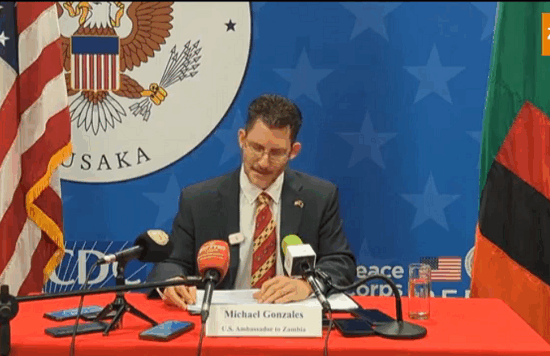
Zambia Council for Social Development – ZCSD, Executive Director says about 65% of children in Zambia are living in households where their basic requirements are not satisfied, making them victims of financial hardship.
Speaking in an exclusive interview, Zambia Council for Social Development Leah Mitaba said, this figure illustrates the extent of child poverty in the country as it shows how many young people lack proper access to basic necessities like food, shelter, healthcare, and education.
“Their long-term growth and prospects are impacted, in addition to their immediate well-being, by this pervasive deprivation. Children are Zambia’s future labor force and leaders, so resolving this issue is essential to the country’s overall development.” She said.
Mitaba further stated that there is a need for coordinated efforts in order to guarantee that these kids have access to the tools and chances they need to succeed.
She further alluded that Several factors have contributed to child poverty in Zambia like Economic instability, which could be characterized by high unemployment rates and low wages, thereby resulting in families struggling to meet basic needs.
“Education barriers, such as limited access to quality schooling, perpetuate the cycle of poverty, as children without proper education have fewer opportunities for economic advancement. Additionally, poor healthcare infrastructure and the high prevalence of diseases like HIV/AIDS affect household stability and children’s well-being.” She explained.
Mitaba further stated that the rural-urban division has exacerbated the issue, as rural areas are often experiencing more severe poverty due to a lack of infrastructure, and other economic opportunities compared to urban centers.
Furthermore, Mitaba elaborated that political and social issues like corruption, poor governance, and inadequate social safety nets have hindered efforts to alleviate poverty by leaving many children vulnerable and deprived of essential resources.
“In addressing child poverty in Zambia, several solutions can be considered talk of Economic development policies that promote job creation, improving wages, and supporting small and medium enterprises (SMEs) are crucial for providing families with stable income sources. Increasing investment in education, particularly in rural areas, is also essential to ensure all children have access to quality schooling and can break the cycle of poverty, strengthening healthcare systems to provide better services and support for children and families will improve overall well-being and stability, expanding social protection programs, including cash transfers and food assistance, can provide immediate relief to vulnerable families and help them meet their basic needs. Engaging communities in development projects ensures that solutions are sustainable and tailored to local needs as well as fostering long-term empowerment and resilience.” She explained.
Furthermore, Mitaba said that to effectively tackle child poverty, Zambia has to take several strategic actions like Strengthening policy implementation, Fostering public-private partnerships, leveraging resources and expertise for greater impact as well as Involving local communities in decision-making processes.
She further called on the general public to look out for each other and practice Ubuntu.







